News of the extended network of faculty, alumni, students, visiting researchers, and mission partners is regularly updated, and some of the big ideas or major events in Global Christianity are covered in the CGCM News.
Alumni Participate in China Christianity Studies Group Annual Meeting 2022
A range of participants, including alumni Anneke Stasson ('13) and Alex Mayfield ('21) attended the China Christianity Studies Group's 2022 annual meeting.
The meeting is now available to view here: youtu.be/5vhZNpKATxo.
Alumnus Titus Presler Appointed Executive Director of GEMN
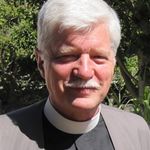
The Rev. Canon Dr. Titus Presler ('95) has been selected as Executive Director of the Global Episcopal Mission Network.
Click here to read the full story.
Daryl Ireland and Eugenio Menegon’s visit to the L’Orientale University of Naples
Every year Boston University (BU) and the L’Orientale University of Naples (UNO) strengthen their partnership through the Faculty Exchange program. This year, Dr. Daryl Ireland, Associate Director of the CGCM, and Dr. Eugenio Menegon, Associate Professor of History at BU and a CGCM affiliate, went on a ten-day visit to Naples as part of the program.
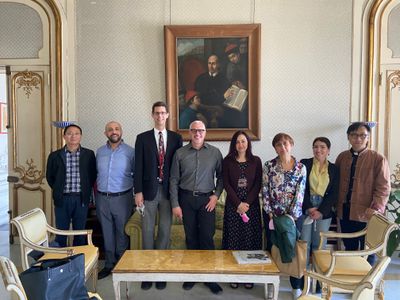
Dr. Ireland and Dr. Menegon spent time exploring the Collegio d’Cinesi—the first school in Europe to teach Chinese. The archives, which now belong to UNO, hold rich resources. For much of the eighteenth century, Christianity was prohibited in China. Christians, therefore, came to Italy to be trained as priests and then returned home. Their letters back to their professors are an extraordinary window into what was happening in China at a time when Westerners were almost entirely absent. They also provide an amazingly rich description of the family, social, and economic networks that sustained fugitive priests.
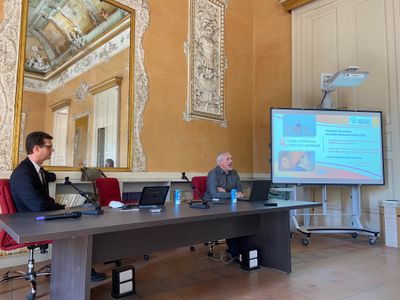
One of the urgent issues that the UNO faculty were concerned about was the state of the archive – poor preservation had resulted in acidic paper being interspersed among the 300-year-old letters. The result? Items were crumbling. One of the reasons for Daryl Ireland and Eugenio Menegon's visit was for the UNO administration to hear from outsiders that the collection was rare and valuable. During a dinner with the Rector (president) of the University, they explained why those materials were important for understanding early modern Sino-Western relations. As a result, the University decided to set aside €40,000 to begin digitizing the archive.
Their visit also strengthened the partnership between BU and UNO. Last year, BU had five UNO students do a remote internship on BU’s NEH-award-winning project: “The China Historical Christian Database.” This visit had produced 10 more student interns for 2022, as well as lots of energy and excitement for the database itself after Dr. Ireland had presented it at a public lecture titled, “The Future of Sino-Western Relations is in its Past.”
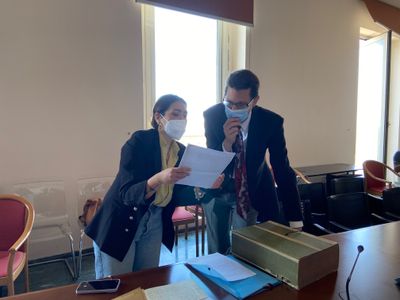
In as much as both institutions gained through the visit - digitizing an archive and 1,500 intern hours – Ireland and Menegon's academic exchange with scholars in Italy was quite invigorating too. Everyone involved saw how the work at BU on the China Historical Christian Database could enrich their work, their ideas, and their questions.
Alumnus Daewon Moon (’18) Speaks at the Korean Lausanne Conference for Pastors and Mission Leaders

Dr. Daewon Moon, CGCM alumnus (’18), recently spoke on “The Lausanne Movement and World Christianity” at the Korean Lausanne Conference for pastors and mission leaders in the Daegu area. The conference was organized in order to promote and publicize the Fourth Lausanne Congress which will take place in South Korea in September 2024.
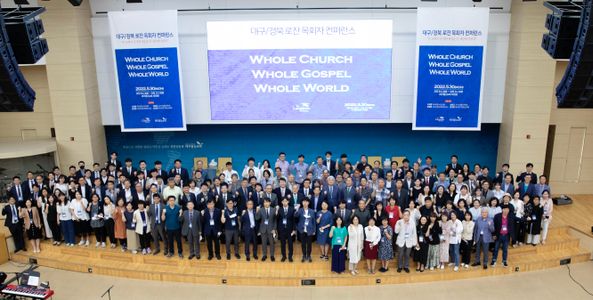
More than two hundred pastors and mission leaders gathered to learn the history and contribution of the Lausanne Movement in uniting evangelical Christians for holistic missions over the past five decades. Other speakers included Prof. Hyung-Keun Choi (Seoul Theological University) and Rev. Chulho Han (Vice-Chair of the Korean Lausanne Committee).
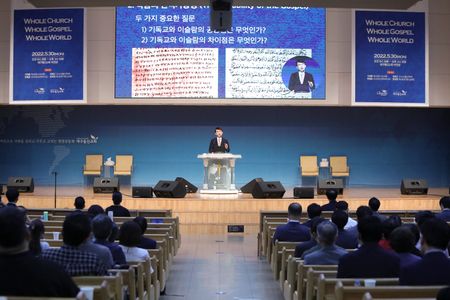
Dr. Moon has been involved in the Lausanne Movement since 2010 when he attended the Third Lausanne Congress in Cape Town, South Africa. He is an active member of the Lausanne Younger Leaders Group (YLG) and wrote an article on African Pentecostalism in the Lausanne Global Analysis.
Livestream of Dana Robert’s Inaugural Gerald H. Anderson Lecture – June 9, 2022
|
June 9, 2022 | Wright Library Theron RoomAll are welcome to attend the inaugural Gerald H. Anderson Lecture, delivered by Dr. Dana Robert, the Truman Collins...
|
African Association for the Study of Religions 2022 Virtual Conference
The African Association for the Study of Religions is thrilled to be gathering online this summer to hear extraordinary papers, keynotes, and celebrate the Association turning 30 years old! The virtual conference will take place June 26-27, 2022.
While the topics covered are heavily influenced by COVID-19, there will be a wide variety of addresses that will also explore the environment in crisis, constitutional crises, trauma in literature and film, gender, etc. You are warmly invited to join in on this joyous event.
To register, please click here.
To view the schedule, please click here.
Please note that there is no registration fee. However, your registration will not be approved unless you have paid this year’s AASR Membership fees. To pay membership fees, please visit www.a-asr.org and choose "Join Us."
If you have any questions, concerns, or need assistance along the way, please email the General Secretary, Nathanael Homewood, at njh2@rice.edu.
Call for Papers for Online Conference on “Missionary Activity and Postcolonial Theology” ~ June 18, 2022.
Tomsk Theological Seminary in Russia will host a one-day online conference panel on the theme of "Missionary Activity and Postcolonial Theology". The conference will take place on June 18, 2022.
Abstracts are due on June 14th. The working languages will be English and Russian.
See the attached letter for details.
Call for Papers: Global Christianity as a Women’s Movement
Dr. Angel D. Santiago-Vendrell, STH alum, E.Stanley Jones Associate Professor of Evangelism at Asbury Theological Seminary, and guest editor of Religions, invites paper submissions for a special issue of the journal Religions on the topic of "Global Christianity as a Women's Movement."
The Special Issue seeks articles by historians, missiologists/theologians, religious scholars, anthropologists, and sociologists of Christianity that advance the scholarship of global Christianity as a women’s movement that address the question: what does putting women’s experiences at the center of the research agenda mean for global Christianity?
- Abstract submission deadline: August 15, 2022
- Notification of abstract acceptance: August 25, 2022
- Full manuscript deadline: January 3, 2023
For more information on the Call for Papers, submission guidelines, and contact information, visit this website.
2023 Wesleyan Theological Society Annual Meeting & Call for Papers
Wesleyan Theological Society Annual Meeting
March 2-4, 2023
Asbury Theological Seminary, Wilmore, Kentucky
To Spread Through All the Earth Abroad: Wesleyan-Holiness Theology and Global Christianity
Plenary Session Speaker:
Kwabena Asamoah-Gyadu
Baeta-Grau Professor of African Christianity and Pentecostal Theology
President, Trinity Theological Seminary, Legon, Ghana
A Call for Papers
Paper proposals are invited on a wide range of topics that might enable Wesleyan-Holiness theology to intersect with the “global south” where much of the vibrancy of Christianity can be found today. Questions might include (but are not limited to): In what ways can Wesleyan soteriology and other theological distinctives help inform the growing theological activity in Africa, Asia, Latin America, and Oceania? How can it be global? How can they be contextualized in ways that celebrate the uniqueness of various cultures or national identities while remaining distinctively Wesleyan? What can North American Wesleyan-Holiness theologians learn from their counterparts in the southern hemisphere? How can Christian spirituality and praxis in those regions of the world help revitalize the Wesleyan tradition in North America and help us rethink Wesleyan theology? In what ways do non-Western Christians in diaspora reshape North American churches in the Wesleyan-Holiness tradition? How was the Wesleyan-Holiness revival, along with its core teachings, transmitted and appropriated in Africa, Asia, Latin America, and Oceania? In what ways did it ride on the coattails of colonialism? How did it contribute to social transformation? What were its connections to the growth of global Pentecostal-Charismatic Christianity?
Papers from scholars from all academic disciplines focusing on these intersections are encouraged. Here are some examples:
- Biblical Studies: Explore passages pertaining to cross-cultural missions, inculturation, cross-inter-cultural intersections, or Jewish-Gentile interactions in the early Christian communities.
- Historical Studies: Tell stories of how Wesleyan, Methodist, or Holiness missions developed in countries in Africa, Asia, Latin America, or Oceania. Think how the Wesleyan revival, with its core doctrines, was transmitted and appropriated in these regions. How did it contribute to social change? How did it intersect with global Pentecostal-Charismatic Christianity?
- Intercultural Studies: Examine how can Wesleyan soteriology and other theological distinctives help inform the growing theological activity in Africa, Asia, Latin America, and Oceania. Investigate how non-Western Christians in diaspora are reshaping North American churches in the Wesleyan-Holiness tradition.
- Moral Theology: Contemplate how might Wesleyan-Holiness theology’s intersection with global Christianity be brought to bear on contemporary understandings of justice in its various dimensions.
- Practical Theology/Christian Formation: Examine non-Western Wesleyan spirituality and identify best practices for the revitalization of the Wesleyan-Holiness churches in the West.
- Systematic Theology: Formulate a Wesleyan theology of missions or intercultural relations.
- Theology and Pop Culture: Examine American popular Christian culture (eg. books, music, movies) and its impact among Christians in the southern hemisphere. Investigate non-Western pop culture phenomena in the West (eg. K-Pop, etc.) and their implications for Western and non-Western Christian relations.
- Theology and Preaching: Rethink the preaching of missions by taking into account the shift of Christianity’s vitality to the southern hemisphere.
- Women’s Studies: Examine the role of prominent indigenous women leaders or pioneers and their contributions. Demonstrate how the Wesleyan-Holiness traditions’ contact with the non-Western cultures empowered women in those cultures and those from the West.
Submit 2023 Paper proposals to the link below: (Due October 1st, 2022)
https://forms.gle/jMzqHaNMFnzzzGVRA
For information on membership renewals and annual meeting registration, visit https://www.wtsociety.org/
